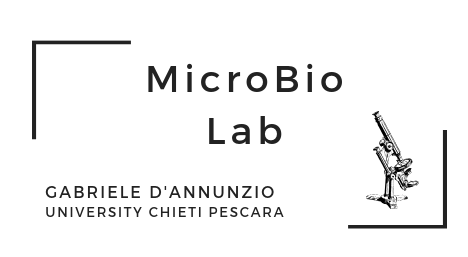A research topic characterizing our lab is focused on the study of Helicobacter pylori, a fickle gastroduodenal pathogen, included by the WHO in the list of bacteria for which new antibiotics are urgently needed. This microorganism has been studied analyzing its survival strategies inside and outside the human host: the capability to enter in dormant states and to form biofilm together with its antibiotic resistance against antibiotics commonly used in therapy. Innovative non-antibiotic compounds have been studied in vitro and in vivo, also in combination with antibiotics, to evaluate their antimicrobial/antivirulence effects to fight the antimicrobial resistance/tolerance of the bacterium (oleoresin of Pistacia vera, bovine Lactoferrin, Resveratrol and its derivatives, Vitamin C chiedere se possono essere cliccabili per collegamento su pubmed) For preliminary in vivo studies, it has been used an efficacious infection model represented by Galleria mellonella larvae, a validate model for the study of the H. pylori pathogenesis. In the last financied MUR PRIN2022 Project it will be studied the Helicobacter pylori infection in terms of its physiology, rug resistance and commensal microbiota interaction to develop innovative therapeutic solutions.
PRIN 2017 An integrated approach to tackle the interplay among adaptation, stressful conditions and antimicrobial resistance of challenging pathogens
PRIN 2022 Ground-breaking approaches to improve the knowledge on Helicobacter pylori infection: analysis of its physiology, drug resistance and commensal microbiota interaction to develop innovative therapeutic solutions.



